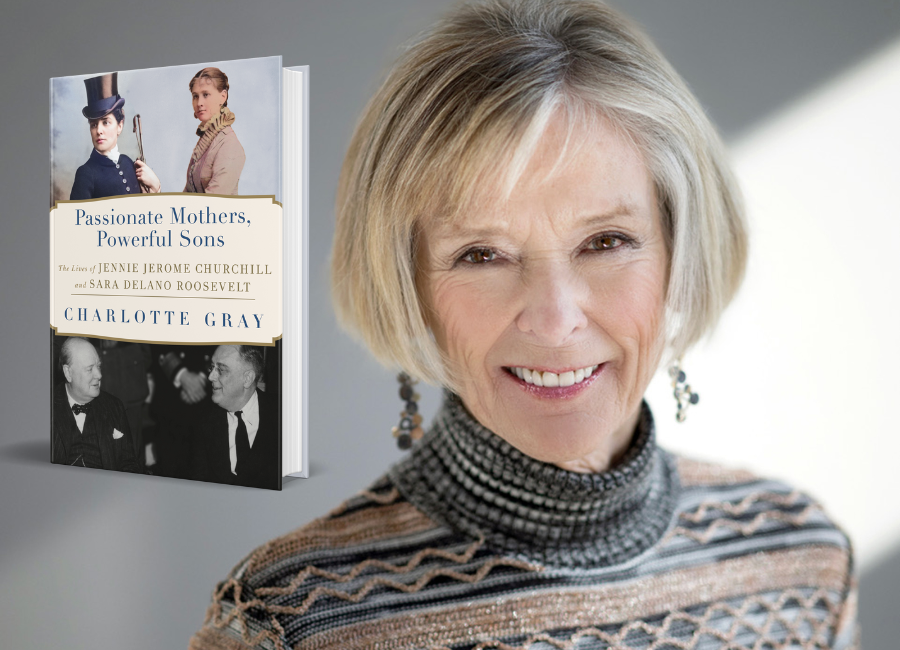An Elegantly Executed Dual Portrait from Award-winning Historian Charlotte Gray

“Gray has managed to do the virtually impossible, and that is to say something new and perceptive about Winston Churchill and Franklin Delano Roosevelt. With her usual keen eye for the telling detail and her sympathy for her subjects, she argues for the importance of the statesmen’s relationships with their two very different but forceful mothers.”
—MARGARET MacMILLAN, New York Times bestselling author of Paris 1919 and War
Passionate Mothers, Powerful Sons by award-winning historian Charlotte Gray is available in stores now. Read on for our exclusive Q&A.
What makes writing about women’s history so exciting and intriguing to you?
Women have always been fifty percent of the population but occupy only about 0.5 percent of recorded history. And those that do creep into history books are depicted as stereotypes rather than fleshed-out characters. There are so many forgotten women’s lives that need to be written back into the story, and I find that giving those women voice, and allowing them to emerge in all their complexity, is a fascinating challenge. It allows me to explore social history, as opposed to political and economic history, and to ask questions like, “Why did she marry him?” or “What was childbirth like in the backwoods?” or “Why couldn’t women own their own houses?”
Why did you choose Jennie Jerome and Sara Delano as your newest subjects for this dual biography?
I was intrigued by the fact that these two women were born in the same year, 1854, within a hundred kilometres of each other, into the same wealthy class—but lived such different lives. Jennie Churchill was a charismatic, creative flirt who swanned effortlessly into the British aristocracy. Sara Roosevelt was a high-principled traditionalist who stayed firmly rooted in New York’s Hudson Valley. Although they lived in privileged cocoons and were hemmed in by sexist assumptions, they made their own decisions and showed real independence of mind and spirit. Their mothering styles were at opposite ends of the spectrum… but each son adored his mother and gave her credit for some of his own success.
Who would you say are the modern equivalents of Jennie and Sara?
Jennie, as influencer, would be a cross between singer Taylor Swift and TV personality Samantha Bee. Sara, as grande dame, would be a cross between actress Dame Judi Dench and United States secretary of the treasury Janet Yellen. Their world—of wealth, privilege, and intrigue—was an early version of Succession, but with top hats instead of Tom Ford sneakers. Both women would have thrived in today’s world, where women have far fewer limitations on their behaviour and their roles and can make their own choices about careers and finances. I really enjoyed discovering how much agency these two women were able to grab, despite the restrictions of their time. Jennie’s great instrument was her beauty; Sara’s was her wealth.
What can modern day mothers learn from Passionate Mothers, Powerful Sons?
For myself, I learned that there is no cookie-cutter, “correct” way of raising sons—every loving mother does it differently. But it is a crucial relationship. These two women had completely different child-rearing styles—Jennie was rather offhand until Winston was nearing his twenties, and Sara’s love was all-enveloping from the moment of Franklin’s birth. Yet neither style affected the strength of their bonds. Both sons adored their mothers and grieved deeply when they died. Moreover, their ways of relating to other actors in their lives were heavily shaped by their primal relationships with their mothers. Winston learned to exert intense pressure, while Franklin learned to be opaque and keep people at arm’s length.